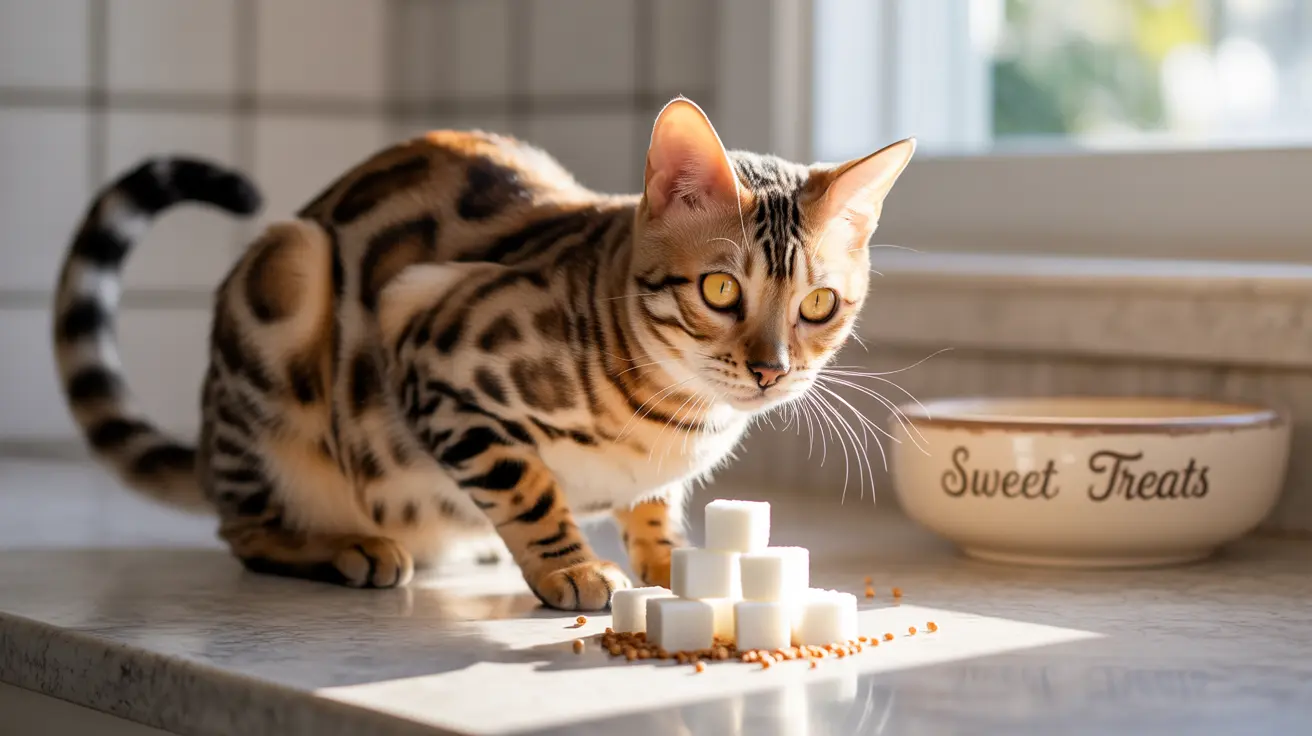Many cat owners wonder about their feline friends' relationship with sweet treats. As a natural part of human diets, it's tempting to share sugary snacks with our pets. However, understanding cats' unique biological relationship with sugar is crucial for their health and well-being.
In this comprehensive guide, we'll explore why cats and sugar don't mix, the potential health risks of sugar consumption in cats, and what you should know about keeping your feline friend healthy and happy without sweet treats.
The Biological Truth: Why Cats Don't Need Sugar
Unlike humans, cats are obligate carnivores with specialized digestive systems designed for processing meat. Their bodies lack the necessary mechanisms to properly handle sugar consumption:
Cats have approximately 500 taste buds compared to humans' 9,000, and remarkably, none of these taste buds can detect sweetness. This biological characteristic means your cat literally cannot taste sugar the way humans do.
Additionally, cats lack essential digestive enzymes like salivary amylase, which makes processing sugars and carbohydrates particularly challenging for their systems.
Health Risks of Sugar Consumption in Cats
Immediate Concerns
When cats consume sugar, they may experience several immediate health issues:
- Digestive upset and diarrhea
- Vomiting
- Lethargy or hyperactivity
- Dehydration
Long-term Health Complications
Regular sugar consumption can lead to serious health problems:
- Obesity
- Diabetes mellitus
- Dental disease
- Chronic digestive issues
- Weakened immune system
Understanding Commercial Cat Food and Sugar Content
Many commercial cat foods contain hidden sugars and unnecessary carbohydrates. When selecting food for your cat, it's important to:
- Read ingredient labels carefully
- Choose protein-rich formulas
- Avoid foods with added sweeteners or high carbohydrate content
- Select species-appropriate nutrition options
Safe Alternatives to Sugary Treats
Instead of offering sugary treats, consider these healthy alternatives:
- Small pieces of cooked lean meat
- Commercial cat treats formulated for feline health
- Fresh water or pet-safe broths
- Catnip or cat grass for enrichment
Frequently Asked Questions
Can cats safely eat sugar or sugary foods without health risks?
No, cats cannot safely consume sugar regularly. While small accidental amounts aren't typically toxic, sugar provides no nutritional benefit and can lead to various health problems.
Why don't cats have a sweet tooth or taste sugar like humans do?
Cats lack the genetic coding for sweet taste receptors, making them physically unable to taste sweetness. This is a result of their evolution as strict carnivores.
What health problems can develop if a cat regularly consumes sugar?
Regular sugar consumption can lead to obesity, diabetes, dental problems, digestive issues, and various other health complications in cats.
Are there any safe treat alternatives for cats instead of sugary snacks?
Yes, safe alternatives include small pieces of cooked meat, commercial cat treats, and cat-specific nutritional supplements recommended by veterinarians.
How can I tell if my cat has digestive issues after eating sugar?
Watch for symptoms like vomiting, diarrhea, lethargy, excessive thirst, or changes in appetite. If these symptoms persist, consult your veterinarian.
Conclusion
While cats might show interest in sugary foods, it's crucial to remember that sugar has no place in their diet. As responsible pet owners, we should focus on providing species-appropriate nutrition that supports our cats' natural dietary needs. If you're concerned about your cat's diet or nutrition, always consult with your veterinarian for personalized advice.






